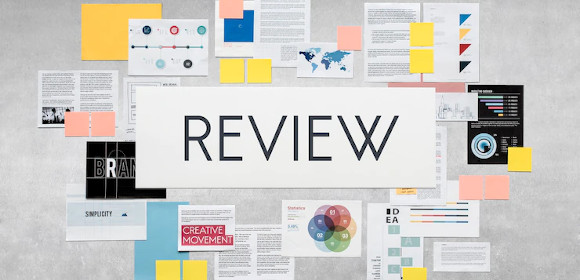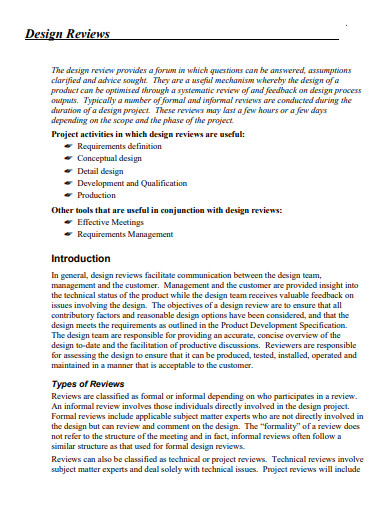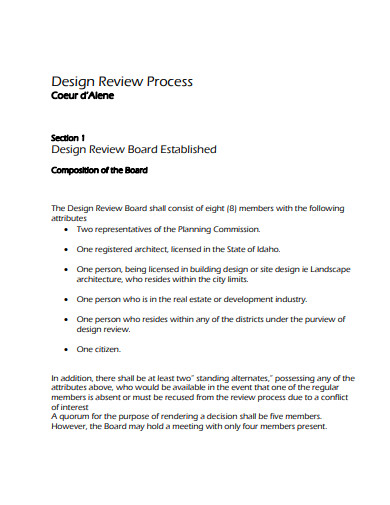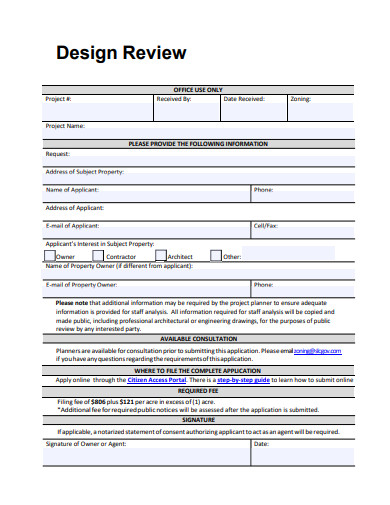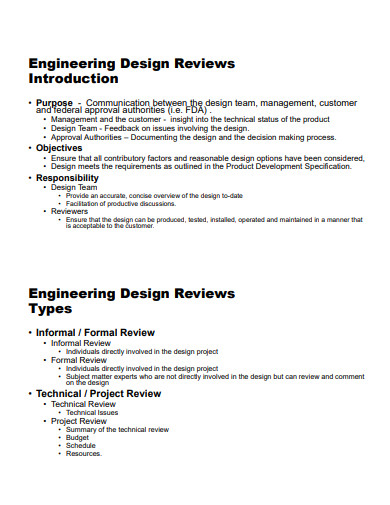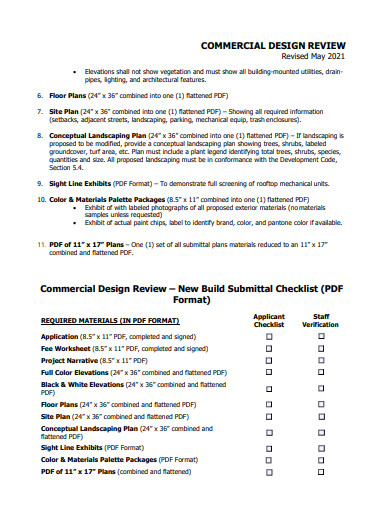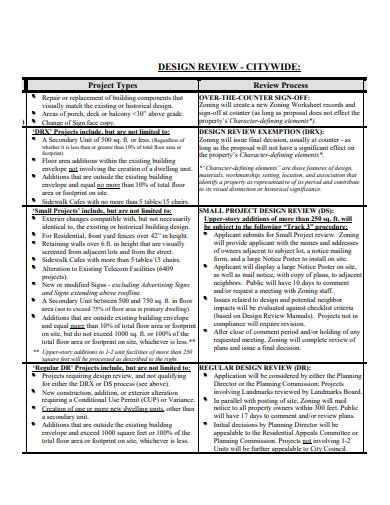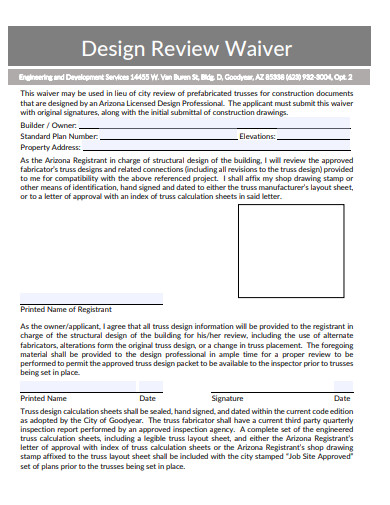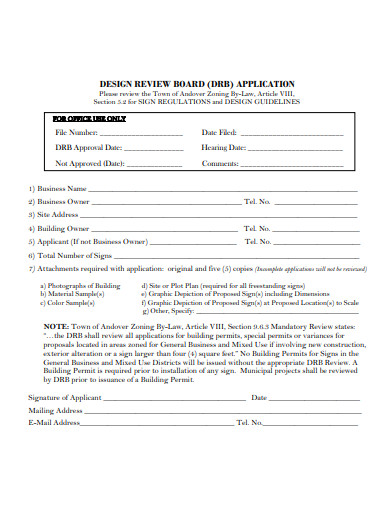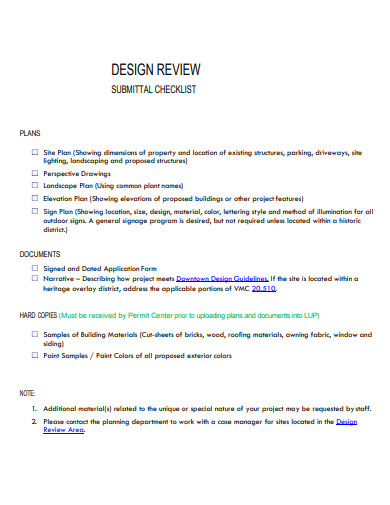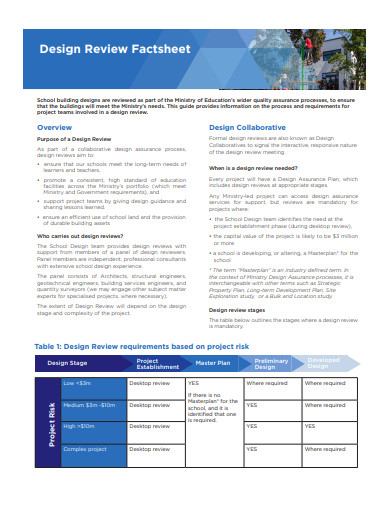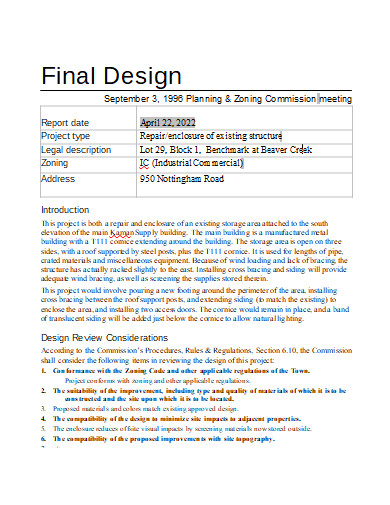Building a new product from scratch can be a lengthy process for the production and design team. In most cases, it is a series of trial and error. Once a project is underway, one of the common processes is to review its design and development against project requirements and outcomes. By doing so, the team is able to identify if there are problems or if the product meets the requirements of the management and such. If it ends up successful, it triggers a product launch and release. To know more about this, let us discuss this further below. And if you wish to start with the review, we’ve got a list of design review samples that are downloadable for free on this page.
10+ Design Review Samples
1. Design Review
2. Design Review Process
3. Design Review Application
4. Engineering Design Review
5. Commercial Design Review
6. Residential Design Review
7. Design Review Waiver
8. Design Review Board Application
9. Design Review Submittal Checklist
10. Design Review Factsheet
11. Printable Design Review
What Is a Design Review?
Product development undergoes several stages, from its conception to the final output. In between those is the design review where there is a need to evaluate the product against its requirements and set objectives. The review looks at how specific features have been implemented and/or evaluates a prototype of a project feature or user flow. This is also part of the design control where it is mandatory to conduct these reviews in certain regulated contexts where outside individuals are to be included in the review process. In most cases, a set of criteria are laid out to serve as a guide.
When conducting these reviews, this could be done formally or informally or may take the form of an open discussion or a more structured workshop. Depending on what type of product is being conceived, those who are invited to review may range from stakeholders, external participants and etc.
How To Conduct a Design Review?
As mentioned, the process of reviewing a particular design will depend on what kind of product has been developed. So before the process could take precedence, the project team must set up a structure to base the reviews. Depending on the team, reviews can be done daily or after one phase ends. Remember, that the reason why a design review needs to be conducted is that management wants to ensure they create a successful product and with reviews and feedback, the team can make all the necessary modifications based on these data. To help you and your team with the design review process, here are several components you must take note of.
I. Reviewers
To start, you need to arrange a group of reviewers who will take part in the process, so as not to make the entire thing one-sided you may opt to invite external individuals or those who are not part of the team or the management. It’s important to have different individuals that will approach a problem from potentially different angles. Each design review will have different invitees, depending on the goal. So you need to take careful consideration of who you invite for the review.
II. Design Review Agenda
Now create an agenda for the meeting. It is much better to have something to follow through or criteria on what the invitees should base the review on. You may start with an overview and background of the project, a presentation of the product where the design team shares the design while participants take notes, and the portion where feedback/ideas are gathered and collected.
III. Feedback Assessments
Feedbacks, ideas, and suggestions from the invitees are the main reason why a design review is conducted. Once the reviewing process ends, the assessment and evaluation should take place thereafter. Allocate time for research on the feedback from the session as you may be able to use this feedback to make all the necessary adjustments and these may even offer permanent solutions to the problems.
IV. The Review Cycle
Believe it or not, reviewing a prototype is a cycle until you get the necessary approval from top decision-makers, so you need to expect that you need to do another design review after the first one. The good thing about reviews is that you have data and feedback from various accounts that you may or may not take into consideration. But it can be of great help to the design team so they can create a better and more functional product.
FAQs
What Is a Preliminary Design?
A preliminary design is a phase where the general project location and design concepts are determined.
How long does it take it design a product?
Product design depends on its complexity, but basically, you should be able to get your first prototype within about 3 months.
What Is a Product Engineer?
A product engineer is a professional who designs and builds products and coordinates the manufacturing process.
Feedbacks and suggestions have always been useful to different business industries since this gives a company leeway to make improvements. This is also particularly true for those engaged in product design and development. This is why it is essential to conduct a design review to make sure the product itself reaches its ultimate purpose and would be ready for launchoing into the market.
Related Posts
FREE 10+ Website Development and Service Agreement Samples ...
FREE 5+ Sample Site Plan Templates in PDF MS Word
FREE 8+ Sample After Action Reports in PDF MS Word | Google ...
FREE 7+ Sample Employee Review Templates in MS Word PDF
FREE 10+ Test Plan Review Checklist Samples in MS Word ...
FREE 8+ Performance Review Samples in PDF MS Word
FREE 10+ Research and Development Agreement Samples ...
FREE 10+ Performance Review Samples in PDF DOC
FREE 10+ College Development Plan Samples [ Faculty, Career ...
FREE 7+ Sample Employee Performance Review Templates in MS ...
FREE 7+ Sample Employee Review Forms in PDF MS Word
FREE 8+ Sample Movie Reviews in MS Word PDF
FREE 8+ Sample Submittal Transmittal Forms in PDF MS Word
FREE 7+ Sample Performance Review Templates in PDF MS Word
FREE 5+ Performance Review Samples in PDF MS Word
